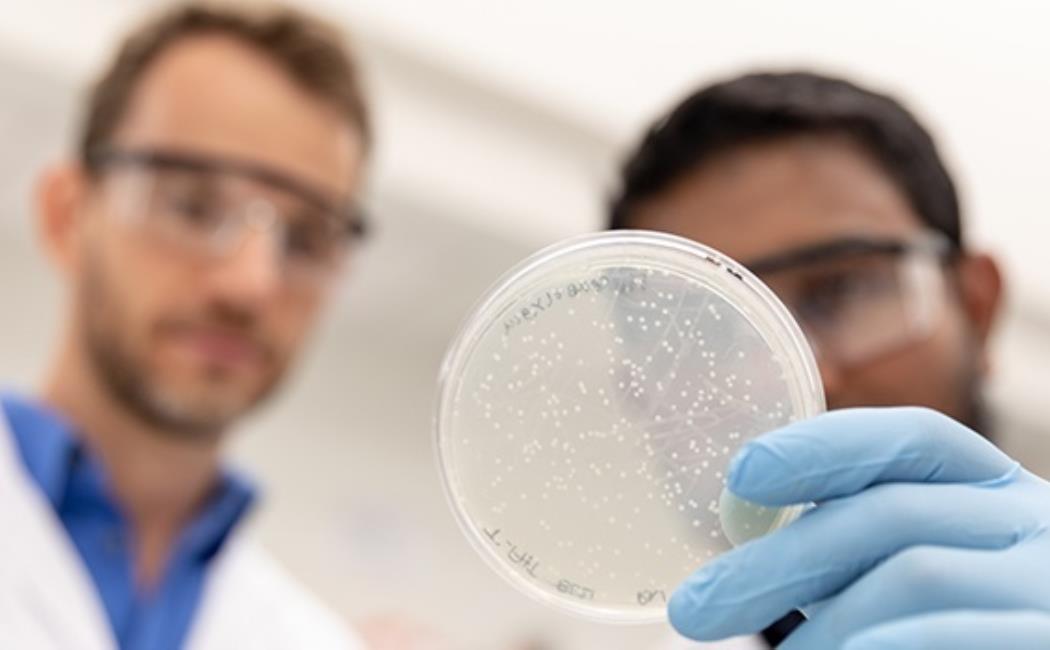
Turning up the heat on pathogenic bacteria
16 June, 2019
Pathogenic bacteria come alive at the metabolic level when they enter the warmth of the human gut, firing up genes that encode toxins and other compounds harmful to our bodies. A KAUST-led study shows how a critical bacterial protein senses changes in temperature to slacken DNA strands and boost gene expression in diarrhea-inducing bugs.
“Having determined how these bacteria sense that they are inside humans, we could try to conceive of small molecules to perturb this mechanism,” says research scientist Umar Hameed. “Such compounds would block bacteria from adapting to their environment, which would weaken them and facilitate eliminating them.”
Click here to read the full story
Image: Stefan Arold (left) and Umar Hameed examine a plate of gut-dwelling bacteria. By studying them, they hope to better understand how they cause diarrheal disease.
2019 KAUST